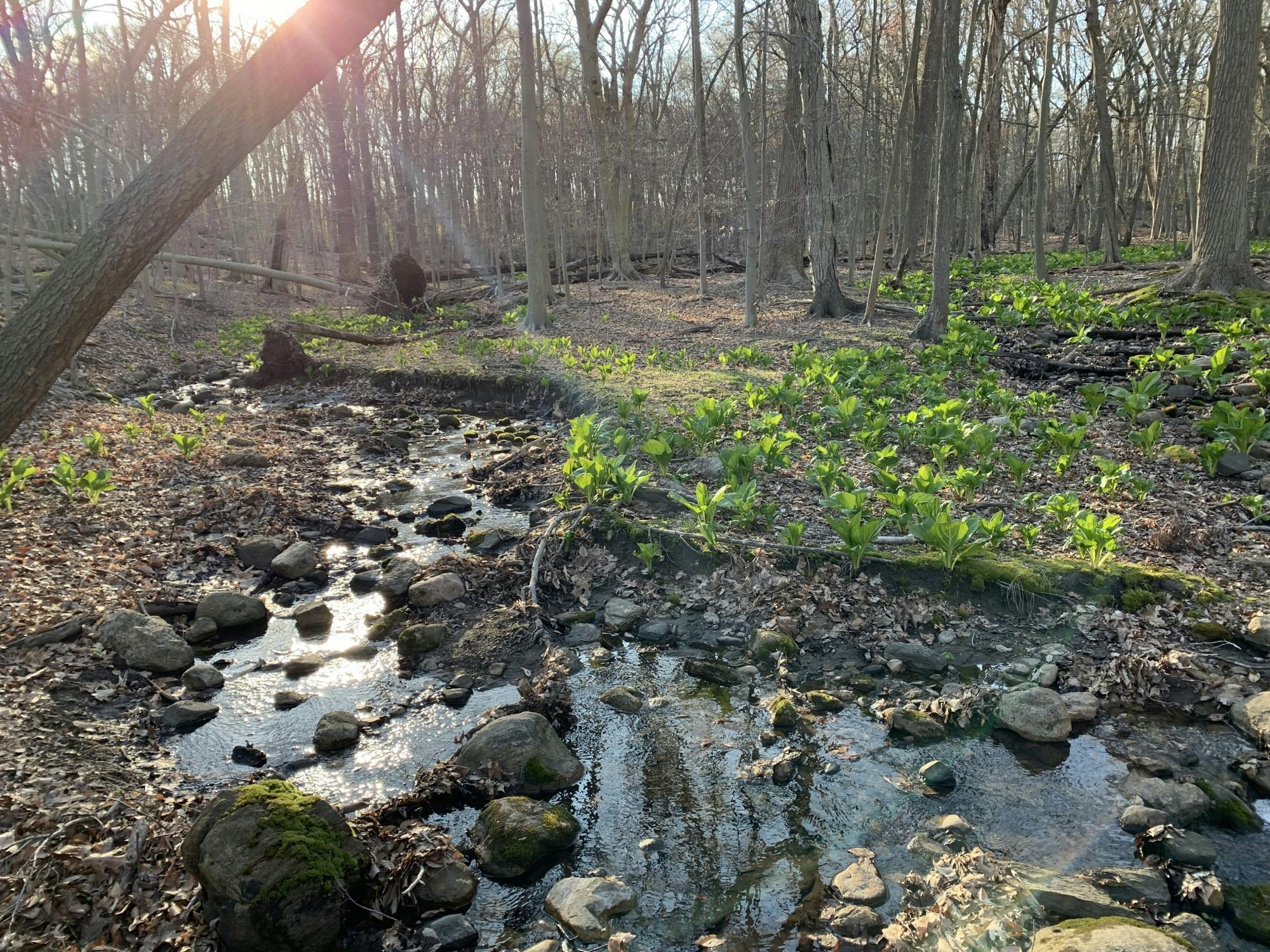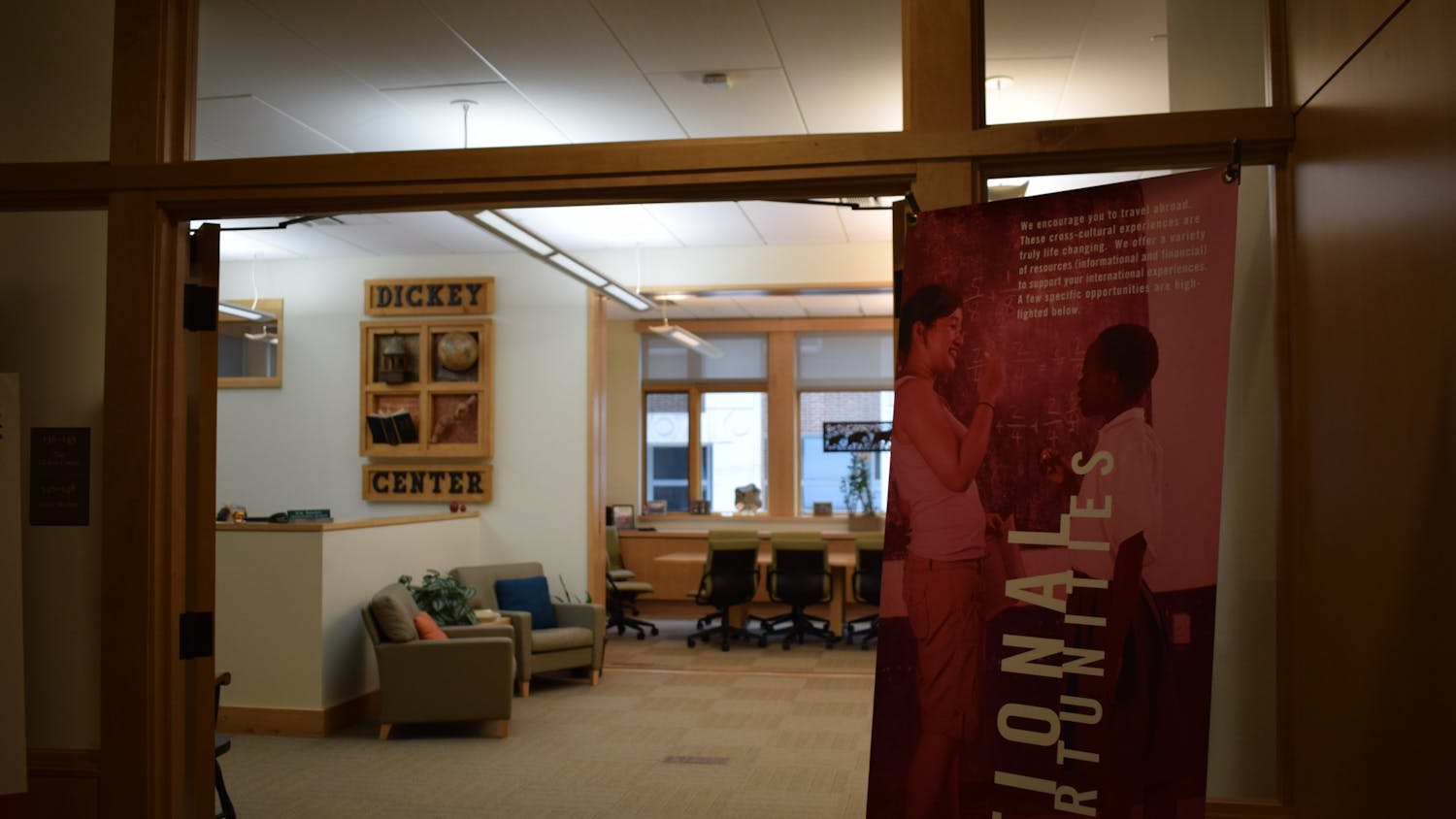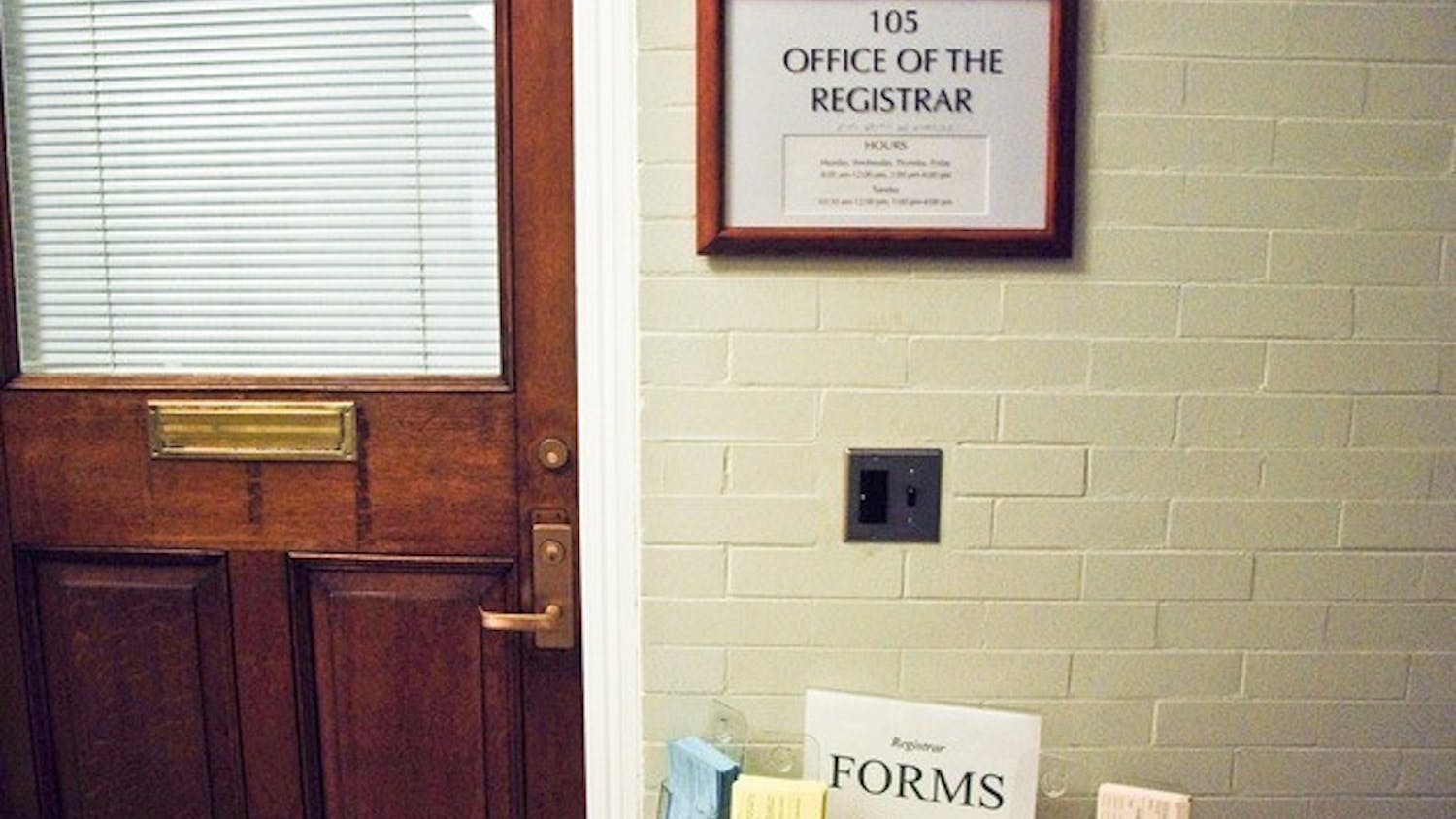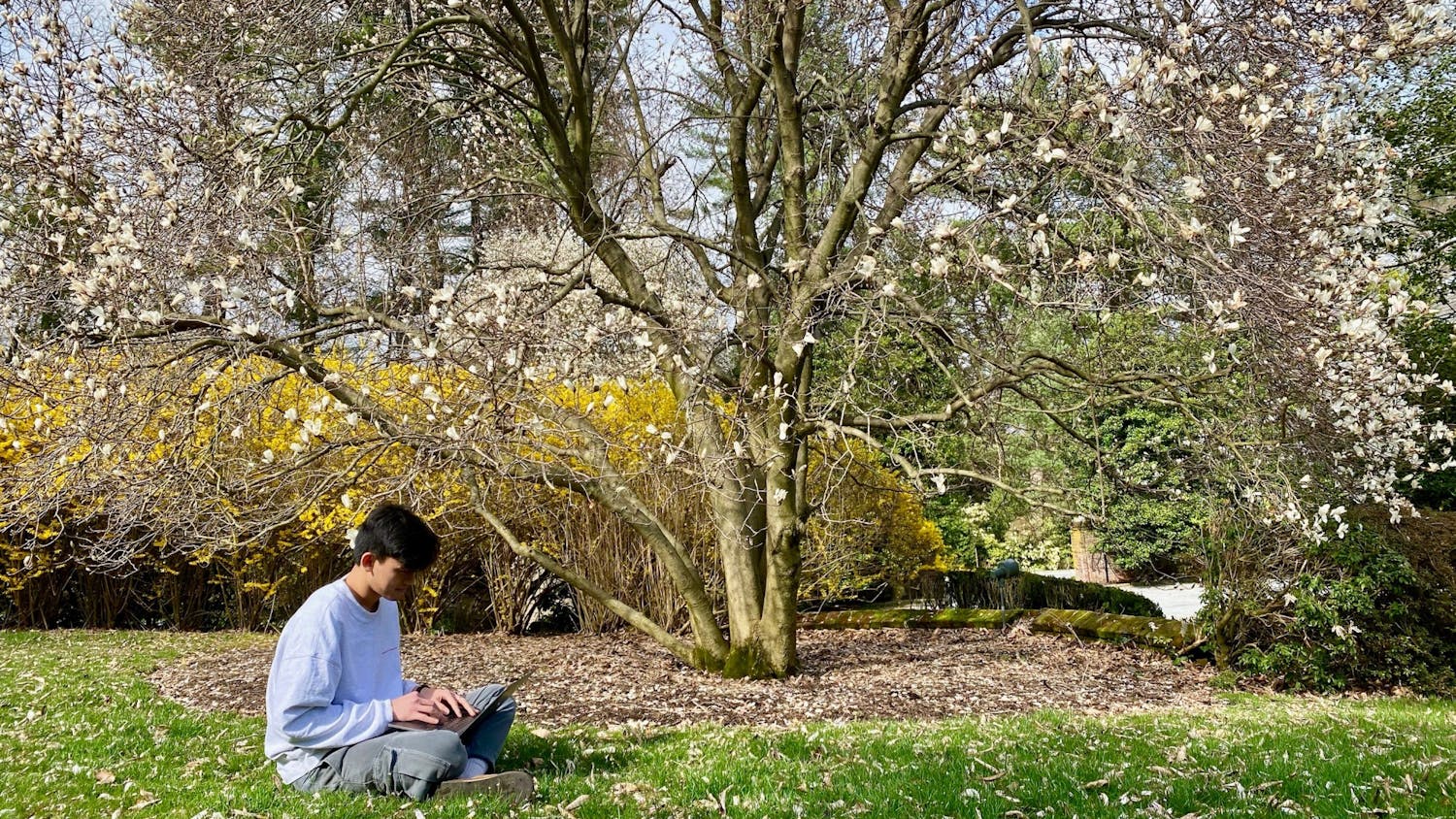This Wednesday marked the 50th Earth Day celebration since the holiday’s founding, and while many planned events had to re-adjust due to the COVID-19 outbreak, student-led environmental groups still found ways to raise awareness.
On Earth Day, the new student group Sunrise Dartmouth held a public Zoom discussion to talk about the organization’s goals and to educate attendees about the connection between environmental issues and the COVID-19 pandemic.
The group, one of 300 “hubs” of the climate justice-oriented national youth organization and political action committee, was started in January and focused last term on campaigning for Bernie Sanders and getting out the youth vote, according to founder and co-host — Sunrise’s term for leader — Abby Bresler ’21.
Bresler said that the group’s original goal for this spring was to join in a nationwide Earth Day strike and release a set of demands to politicians and the College administration urging them to support measures against climate change.
“We envisioned 50 percent of Dartmouth students walking out of class,” she said.
In light of the COVID-19 pandemic, however, their plans had to be amended.
According to Sunrise co-host Zachary Spicer ’22, the strike would have been a joint effort between Sunrise and other national climate activism groups. Leaders of the Dartmouth hub had already undergone training on how to organize a large strike, he said. The in-person strike was canceled over spring break, according to Spicer, before the College’s announcement that the spring term would be conducted remotely.
“We knew it wasn't going to be smart to gather in groups over 100, and our goal was way above that,” he said.
Instead, the group scheduled the Earth Day meeting and publicized a virtual strike, wherein people could post pictures to social media holding signs explaining the importance of climate issues with the hashtag #climatestrikedartmouth.
During the Earth Day Zoom discussion, held in conjunction with the virtual strike, Sunrise organizers discussed and answered questions about the group’s goals. Around 30 people attended the event.
On the call, guest speaker Richard Clapp ’67, an adjunct professor of public health at the University of Massachusetts Lowell, spoke about how disenfranchised communities with health issues caused or exacerbated by climate change are at greater risk of contracting the coronavirus.
“People who are being disproportionately affected by the climate crisis are also being disproportionately affected by the COVID-19 crisis as well,” Bresler said.
Sunrise has also postponed the announcement of its demands to the Dartmouth community and state and local politicians, as Bresler noted that the group would prefer to be back on campus to unveil them. She added that the group has used the spring to build connections with other groups so that its demands reflect the desires of the entire Dartmouth community.
On Friday, Sunrise will host another call in partnership with the environmental studies division of the Dartmouth Outing Club. Rachel Kent ’21, a member of the ESD, said that the event will focus on the link between climate change and the current pandemic.
Kent said that part of the meeting, which will start with a video presentation and then break into smaller discussion groups, will cover how recent images of the positive environmental effects of the global shutdown paint an incomplete picture.
“When taken in the context of the pandemic, [the photos] come in tandem with all these lives being lost and disruptions to people’s lives,” she said.
She said that the ESD will also facilitate a discussion on what outdoor recreation looks like during the pandemic, since some national parks and other outdoor areas have chosen to shut down to protect small communities nearby. She mentioned that the ESD has begun publishing a weekly email newsletter with perspectives from students on their favorite outdoor spaces, resources for outdoor recreation and updates on the ESD.
“For a lot of us, the outdoors is a grounding force and kind of a coping mechanism,” she said.
Shannon Sartain ’21, another ESD member, said the Friday discussion will be an opportunity to bring awareness to climate change even while a more immediate crisis has taken the world stage. She said that the ESD aims to convey that people’s attitudes toward the pandemic are similar to how they should feel about the climate crisis.
“There's a huge problem that’s happening that’s going to endanger a lot of people, and there are some things you can do about it,” Sartain said.




